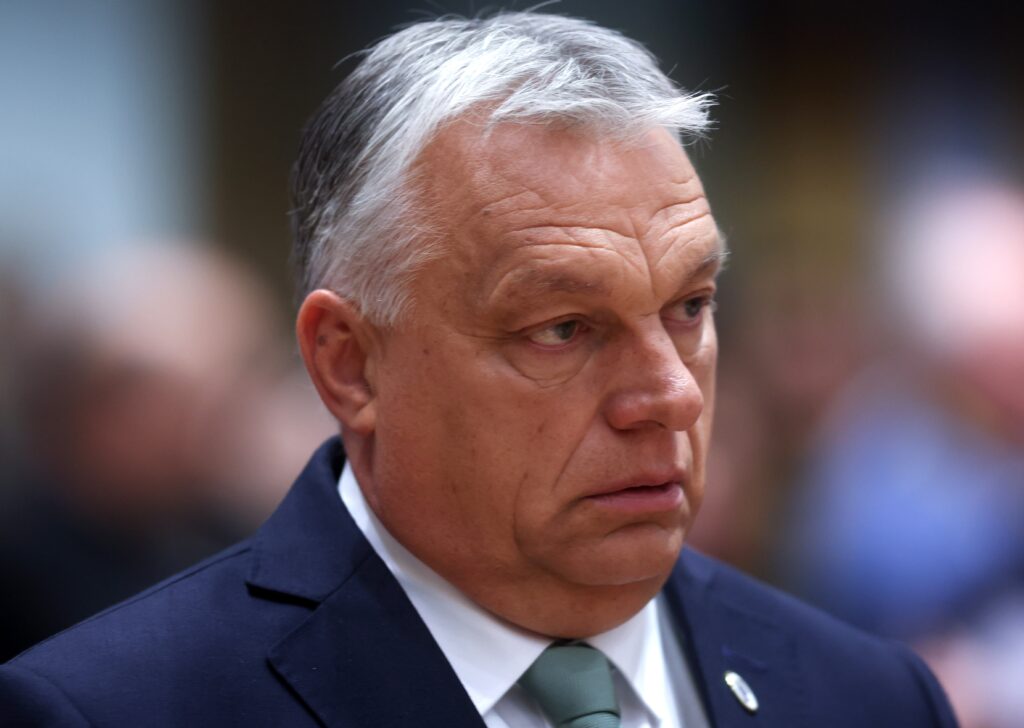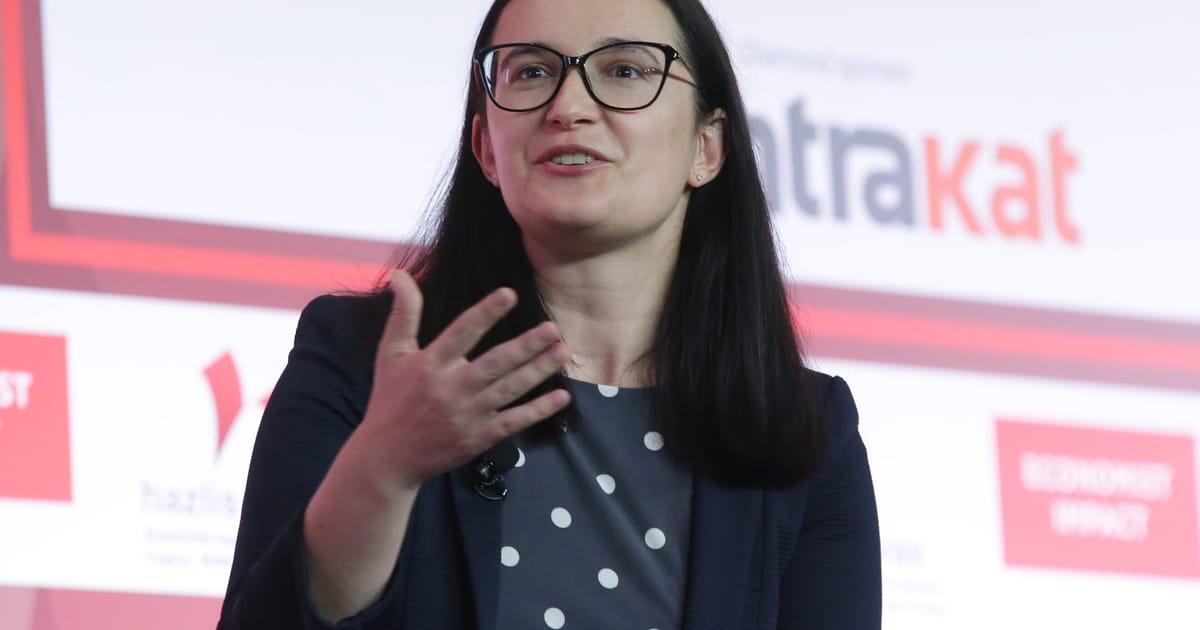That creates a potential impasse, especially given the reluctance in Brussels to leave Kyiv behind. Meanwhile, for the EU and Chișinău, Friday’s summit aims to send a strong political message ahead of a critical nationwide vote on Sept. 28, which the Kremlin has been trying to sway.
“We see that Russia is investing unprecedented resources to interfere in the parliamentary elections,” EU Enlargement Commissioner Marta Kos told POLITICO. “Moscow sees Moldova as a strategic piece to destabilize southern Ukraine.”
Moldovan authorities reported widespread disinformation, vote-buying and hybrid tactics during last October’s referendum on membership in the bloc, which was approved with 50.4 percent support. But although pro-EU President Maia Sandu subsequently managed to secure a second term in office, control of the parliament and the government will be critical in determining the country’s future course.
 Prime Minister Viktor Orbán has vowed to veto Kyiv’s application. | Olivier Hoslet/EPA
Prime Minister Viktor Orbán has vowed to veto Kyiv’s application. | Olivier Hoslet/EPA
The EU is already providing billions of euros to bolster Moldova’s resilience against Russian hybrid tactics, as well as to support the economy and bring down energy bills. The Friday summit “shows the importance Europe attaches to stand by Moldova’s side in these difficult times and to support it on its path to EU membership,” Kos added.
According to Siegfried Mureșan, a Romanian MEP who leads the European Parliament’s delegation to Moldova, Chișinău faces fewer practical challenges to joining the EU than Kyiv.
“It’s a smaller country that’s easier to integrate,” he said, “but the EU perspective needs to be made credible to all EU candidate countries. So the message needs to be clear: As soon as the criteria are met, a candidate country can join.”
Gabriel Gavin reported from Brussels, Belgium. Nicholas Vinocur reported from Aarhus, Denmark.
